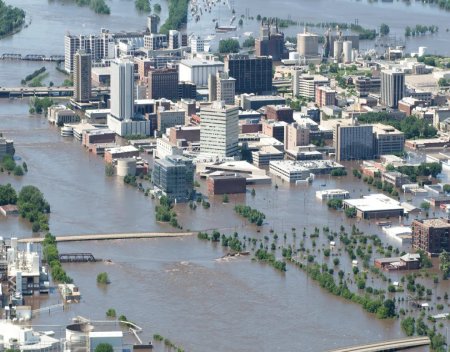
Does How My Home Was Built Affect My Flood Insurance Rates?
Flood insurance provides financial protection against property damage due to flooding.
Here's an overview of how it works:
1. Coverage Flood insurance policies typically cover two main areas: Building Property Coverage: This includes the structure of your home or building, such as the foundation, electrical and plumbing systems, appliances, and carpeting.
Personal Property Coverage: This covers the contents of your home, such as furniture, clothing, electronics, and other personal belongings.
2. Availability Flood insurance is available through two primary sources: National Flood Insurance Program (NFIP): Managed by the Federal Emergency Management Agency (FEMA), the NFIP offers flood insurance to property owners, renters, and businesses in participating communities.
It is the most common source of flood insurance in the U.S.
Private Insurers: Some private insurance companies also offer flood insurance, which can be an alternative or supplement to NFIP coverage.
3. Premiums Flood insurance premiums vary based on several factors, including: Location: Properties in high-risk flood zones (Special Flood Hazard Areas) generally have higher premiums than those in low- or moderate-risk zones.
Building Characteristics: The age, design, and elevation of the building can impact premiums.
Coverage Amount: The level of coverage selected for building and personal property.
4. Flood Zones and Maps Flood insurance rates are based on flood risk, which is determined using flood maps created by FEMA.
These maps categorize areas into different flood zones, with high-risk areas requiring mandatory flood insurance for properties with federally backed mortgages.
5. Waiting Period There is typically a 30-day waiting period from the date of purchase before the flood insurance policy becomes effective.
This prevents people from buying insurance only when a flood is imminent.
6. Claims Process If your property is damaged by a flood, you need to: Notify the Insurer: Contact your insurance agent or company to report the flood damage.
Document the Damage: Take photos or videos of the damage and make a list of damaged items.
Meet the Adjuster: An insurance adjuster will inspect the damage to assess the extent of the loss.
Receive Payment: Once the claim is processed, you will receive payment for covered losses according to the terms of your policy.
7. Exclusions Flood insurance policies have certain exclusions, such as: Damage caused by moisture, mildew, or mold that could have been avoided.
Property outside the building, like landscaping or septic systems.
Living expenses such as temporary housing.
8. Community Participation To be eligible for NFIP insurance, communities must participate in the NFIP and adopt floodplain management regulations designed to reduce future flood damage.
Understanding these basics can help you determine if flood insurance is right for you and how to go about obtaining and maintaining it.
We contacted Mr. Holt for an estimate via email over the weekend prior to a closing on a property, hoping for a response on the following Monday to take with us with confidence in being insured at the settlement table on a Tuesday. He exceeded our expectations not once but in readily responding to the initial request and then to follow-up questions all during the weekend frenzy that occurs before closing. "Impressive and responsive customer service," for sure!
I have known Tim for many years and he is a man with great integrity, work ethic and one of the nicest persons I know. Over the years Tim has provided insurance counseling and advice to our company, for myself personally, as well as to our clients. Recently Tim, took time to analyze our flood insurance policy and he was able to make some excellent recommendations. Our flood insurance costs are now less and we have much better coverage. I recommend Tim to anyone without hesitation or reservation.
I have no problem giving you an A1 reference for taking care of the flood policies for me and Diane. I appreciate you working with the mortgage company: the surveyor and our previous agent. The result was a 75% reduction in our flood insurance premiums!